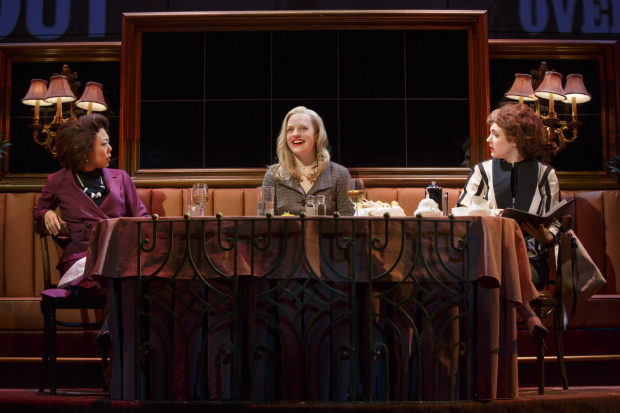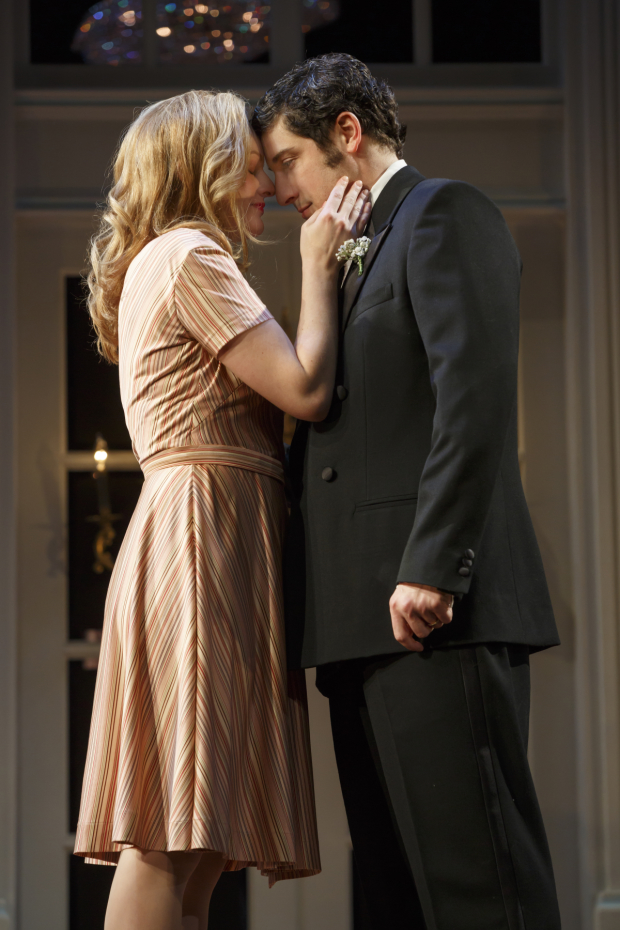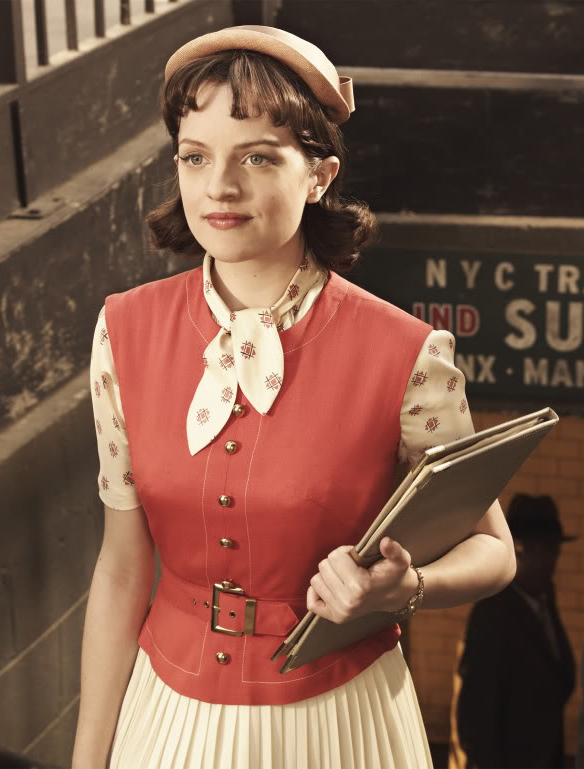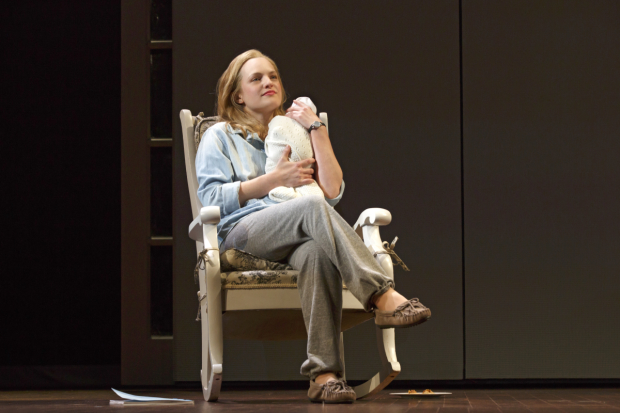8 Questions With Elisabeth Moss: Heroine-ism Through the Lens of Heidi Holland and Peggy Olson
The ”Heidi Chronicles” star talks feminism, high school dances, and her brand-new Tony nomination.

(© Joan Marcus)
Elisabeth Moss knows a thing or two about portraying women who feel restricted by the circumstances into which they were born. On the heels of wrapping seven seasons as secretary-turned-copy-chief Peggy Olson on AMC's Mad Men, Moss recently made her way to Broadway to star as the conflicted title character in a revival of Wendy Wasserstein's 1988 play The Heidi Chronicles, a performance for which she earned her first Tony nomination.
Similar to Peggy's arc on Mad Men, Heidi traces one woman's journey from a hopeful (if sardonic) young woman to disillusioned twentysomething and finally, (guardedly) hopeful adult. Along the way, Heidi comes up against vastly different perspectives on what it means to be female from both women and men, including the play's two supporting characters: Heidi's longtime best friend, Peter (played by Bryce Pinkham), and her on-again, off-again lover, Scoop (Jason Biggs).
"It's a story of [Heidi] being affected by the people around her," says Moss. Ultimately, however, The Heidi Chronicles is about finding hope in the future and self-assurance in the present, a self-assurance Moss shoots for — and often attains — in her own life. Heidi (and Peggy) would be proud.

(© Joan Marcus)
1. How do you feel about your Tony nomination?
I'm very proud of all of us. I've told my cast in person that I feel like my nomination, as silly as it sounds, is for all of us. Because Wendy didn't write [the character of Heidi] on her own. She's so affected by the people around her…I've told each and every one of them that there is no Heidi without all of them.
2. What was your favorite line in the show?
It's definitely "A heroine for the twenty-first!" That sort of sums it up, and it's something that I've repeated so many times.
3. What was it like to have the original cast of Heidi see the show?
We got to hang out with them afterward, and Joan Allen [the original Heidi] was sort of teary, and that meant a lot to me and she said very nice things, which also meant a lot to me…[They were] so excited about our production and so happy for us. It was a very cool moment.
4. We meet young Heidi as an awkward adolescent at a dance. What was your M.O. at high school dances?
I had a sort of unique education…so I never had a high school dance. But I grew up as a dancer. I trained in ballet. So for me, getting up and dancing in public was not something that was unusual…I mean I danced with boys all the time in class. So it wasn't something that I felt like I missed. I was doing professional ballet dancing with boys…But I never had that experience, so I don't know what I would have done. I probably would have been the girl who was against a wall, like, hanging out with her girlfriends and way too nervous to dance with a boy.
5. Which of the decades in The Heidi Chronicles would you like to spend a week in and why?
Of the sixties, seventies, eighties, I would say I would definitely pick the eighties. Just because of women's equality, you definitely would want to be in the latest decade possible. But not for reasons of fashion, that's for sure. I love the fashion of some earlier decades, like the twenties and thirties, but I think the reality of it was probably really different. It's like, yeah, I would loved to have worn certain clothes, but the great part of my job is that I get to go do that but I don't have to experience the problems of that time.

6. As a member of the preceding generation of women, what advice would Peggy Olson give Heidi?
She would probably tell her to keep concentrating on her work, which is something that Heidi doesn't really have a problem with. It sort of catches up to her in a way, and she struggles with that a little bit later in life, but I think she comes around to being very proud of the choices she's made in her life. So I think Peggy would be very proud of Heidi and would think that Heidi had definitely taken the right path.
7. In what ways are you different from Heidi?
I think I'm different from her in the sense that I'm much more confident in my choices. I am a little older than Judy, Heidi's baby, but of that generation. And Heidi says in the play, "Maybe things will be a little better," meaning for the next generation and for her daughter, and you know…things did improve. I'm not struggling with feeling sort of left stranded, as Heidi does. I feel like there are men and women who are like me, and I feel like there's a great amount of support in the choices you make in your life. Whether man, woman, straight, gay, whatever you are, there's this acceptance — that obviously we're still working on in many ways – but it's definitely better than it was.
8. In which scene from the play do you most identify with Heidi?
I would say the final scene. She's becoming a heroine of her own generation, and that acceptance of her life and the choices she's made is something that I definitely identify with…At the same time, there are scenes when she feels out of place or when she feels shy that I can identify with as well. But overall, that kind of self acceptance that she has in the final scene I probably identify with the most…She's encountering this man, who has been this huge figure in her life and caused her a lot of pain…but she doesn't feel a victim of him anymore. He can't cause her any more pain. And that's sort of a decision that you have to get to…I think that she's quite the heroine in that last scene.

(© Joan Marcus)








